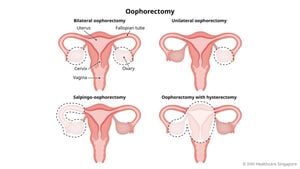The 2025 German federal elections have marked a watershed moment for the political scene, particularly highlighting the setbacks faced by the Social Democratic Party (SPD). On February 23, approximately 60 million voters took to the polls to elect 630 members of the Bundestag, the German Parliament. The elections, seen as one of the most decisive events in the country's political narrative, unfolded against the backdrop of shifting allegiances and heightened electoral stakes.
Preliminary results announced on February 24 revealed unsettling prospects for the SPD. Led by Chancellor Olaf Scholz, the party managed only 16.4% of the votes, securing 120 seats—an alarming decline of 9.3 percentage points from the previous federal election. This outcome is particularly disheartening as it marks the worst electoral performance for the SPD since World War II. Scholz, caught between maintaining his position and the tidal wave of voter disappointment, expressed, "This is a bitter electoral result for the Social Democratic Party," acknowledging the need for reflection and strategy adjustment.
The big winner of the elections was the Christian Democratic Union/Christian Social Union (CDU/CSU), which garnered 28.6% of the vote and 172 seats. Friedrich Merz, the CDU/CSU candidate for Chancellor, has claimed his party's position as the largest faction in the Bundestag and emphasized the importance of expediency, stating, "The world does not wait for us, nor for lengthy coalition negotiations." This sentiment reflects the urgency among German leadership to restore confidence and decisiveness following the electoral turmoil.
Meanwhile, the far-right Alternative for Germany (AfD), led by Alice Weidel, emerged as the second-largest force, with 20.8% of the votes and 152 seats, showcasing their increasingly prominent role within German politics. The rise of the AfD, up from 10.4% previously, signifies shifting voter dynamics and concerns around the party's messaging and appeal. The Left Party also capitalized on the SPD's shortcomings, rising to 8.8% with 64 seats, underscoring the fragmentation of the traditional political spectrum.
Additional repercussions were felt by the Free Democratic Party (FDP), which failed to meet the necessary 5% threshold to secure representation, plummeting from 11.4% to 4.3%—a sharp indication of voter disenchantment with former coalition allies of the SPD. The upcoming coalition-building efforts will likely be complex, as parties reassess their positions and negotiate agreements to form governing coalitions.
These election results paint not only a picture of immediate political fallout but also signal pressing concerns for the future. From economic recovery to climate change and security issues, the next government will need to navigate numerous challenges with agility and resolve. Merz's emphasis on action resonates with many who feel Germany's leadership needs to project confidence both domestically and internationally.
Scholz's continuation as Chancellor until the establishment of the new government adds another layer of complexity. He stands as the first Chancellor not to be re-elected for five decades—a noteworthy anomaly reflecting the gravity of the situation at hand. The SPD's loss not only dents the party's legacy but also challenges its relevance and voter trust going forward.
Reflecting on the consequences of this electoral verdict, analysts suggest the SPD must engage earnestly with its voter base and reassess its platforms and policies to respond to burgeoning issues and public concerns. The rise of the CDU/CSU and AfD signifies wider public dissatisfaction, and if not addressed effectively, this could lead to long-term shifts within the German political framework.
The establishment of the new governance will be pivotal, setting the stage for how Germany approaches both its domestic needs and its role within Europe. The urgency articulated by Merz encapsulates the broader expectations of the electorate, yearning for clarity and leadership as the country heads down uncharted political paths. The road ahead is fraught with challenges, and how the former ruling coalition embraces this framework will determine its short- and long-term political viability.



